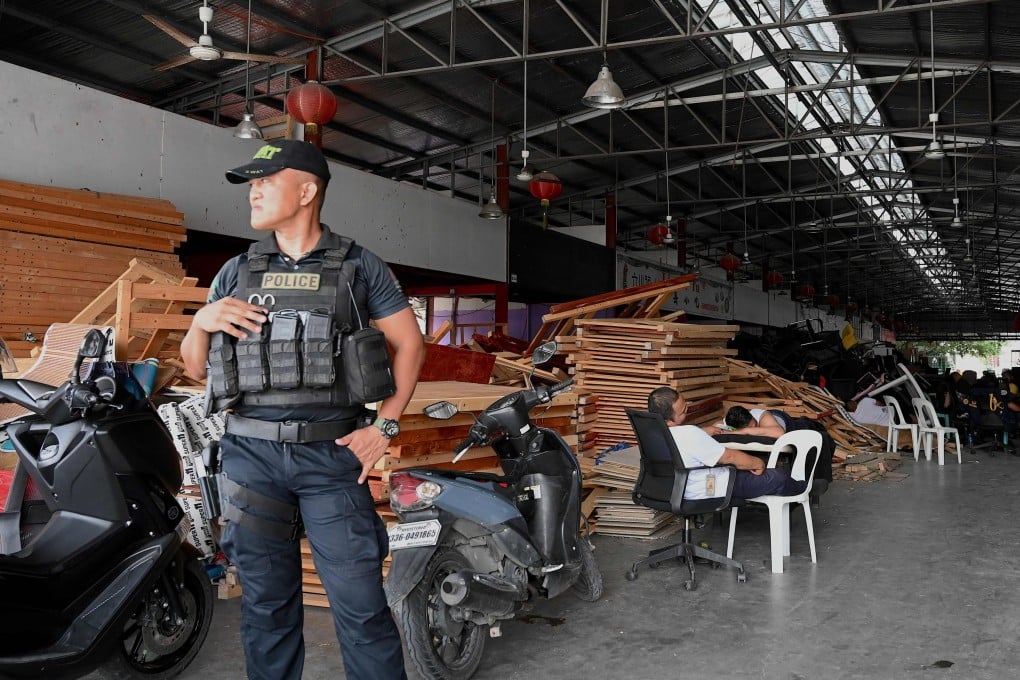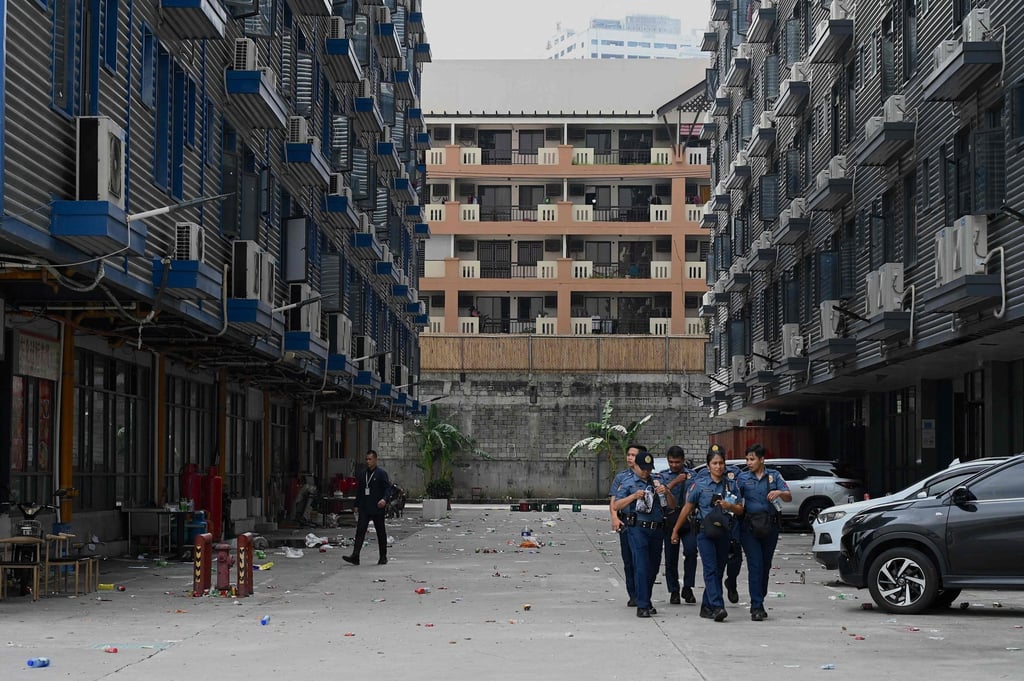Advertisement
Chinese, Indonesians, Malaysians among 2,700 victims rescued in Philippines cyber scam raid
- The massive nighttime raid on a compound in Las Pinas city, Metro Manila, hints at how the Philippines has become a key base for cybercrime syndicates
- Those rescued from the compound included 604 Chinese, 183 Vietnamese, 137 Indonesians, 134 Malaysians, 81 Thais – and 1,534 Filipinos
Reading Time:2 minutes
Why you can trust SCMP

Philippine police backed by commandos say they have rescued more than 2,700 workers from China, the Philippines, Vietnam, Indonesia – and more than a dozen other countries – who were swindled into working for fraudulent online gaming sites and other cybercrime groups.
The number of human trafficking victims rescued from seven buildings in Las Pinas city, metropolitan Manila, on Tuesday and the scale of the massive nighttime raid were the largest so far this year and indicate how the Philippines has become a key base of operations for cybercrime syndicates.
Cybercrime scams have become a major issue in Asia with reports of people from the region and beyond being lured into taking jobs in countries like strife-torn Myanmar and Cambodia. However, many of these workers find themselves trapped in virtual slavery and forced to participate in scams targeting people over the internet.
Advertisement
In May, leaders from the Association of Southeast Asian Nations agreed in a summit in Indonesia to tighten border controls and law enforcement and broaden public education to fight criminal syndicates that traffic workers to other nations, where they are made to participate in online fraud.

Brigadier General Sydney Hernia, who heads the national Philippine police’s anti-cybercrime unit, said police armed with warrants raided and searched the buildings around midnight in Las Pinas.
Advertisement
Advertisement
Select Voice
Select Speed
1.00x